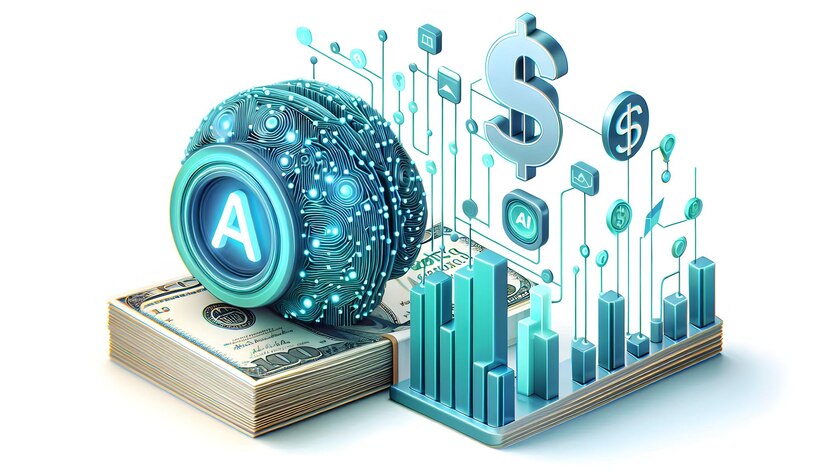Enhancing Behavioral Intelligence AI Decision Engines with SLMs
Despite the bigger is better AI hype, real techies, not tech bro’s for show, are sticking to our instincts, because those LLM hallucinations are not going away are they? The pursuit of perfection is not going to come from a competition stifling Big Bucks Big Tech cartel, but rather a collaboration of real people sharing ideas for good – which means being collaborative and genuinely innovative. Saving places, people, planet and purse strings.
The fusion of behavioral intelligence (BI) and artificial intelligence (AI) has been quietly revolutionizing decision-making processes across various sectors. By analyzing human behavior patterns AI SLMs in, partnership with tried and trusted algorithms, reliably predict future actions and facilitate proactive interventions. Integrating Small, Specialized and even Symbolic Learning Machines (SLMs) into these BI AI decision engines further amplifies their capabilities, enabling more accurate, transparent, and explainable outcomes.
The sky is the limit but this article explores the concept of SLMs within BI AI decision engines and delves into their practical applications in fraud prevention, finance, cybersecurity, and health and wellness.
Understanding SLMs in BI AI Decision Engines
SLMs, a type of AI that utilizes symbolic reasoning to learn and make decisions, offer a unique advantage over traditional machine learning models. While the latter often function as “black boxes,” SLMs can provide clear explanations for their decisions (an audit trail if you will to justify their response), enhancing transparency and trust. In BI AI decision engines, SLMs analyze behavioral data to identify patterns and anomalies, generating human-readable rules that explain the reasoning behind their predictions. This transparency is crucial for understanding and validating the AI’s decision-making process, especially in sensitive areas where explanation is paramount.
Use Cases Across Industries
- Fraud Prevention: SLMs can analyze transaction patterns, user profiles, and historical data to identify potentially fraudulent activities. By learning from past fraud cases, SLMs can generate rules to flag suspicious transactions in real-time, enabling proactive intervention and minimizing financial losses.
- Finance: In financial markets, SLMs can analyze market trends, investor behavior, and economic indicators to predict market movements and identify investment opportunities. Their ability to provide clear explanations for their predictions helps financial analysts understand the underlying factors driving market dynamics, leading to more informed investment decisions.
- Cybersecurity: SLMs can play a crucial role in detecting and preventing cyberattacks. By analyzing network traffic, user behavior, and system logs, SLMs can identify patterns indicative of malicious activity. Their ability to generate human-readable rules helps security analysts understand the nature of potential threats, enabling proactive measures to mitigate risks.
- Health and Wellness: SLMs can analyze patient data, lifestyle patterns, and medical history to predict health risks and recommend personalized interventions. By identifying patterns associated with specific health conditions, SLMs can provide insights into potential health issues, empowering individuals to take proactive steps towards better health and wellness.
Benefits of SLMs in BI AI Decision Engines
- Enhanced Accuracy: SLMs leverage symbolic reasoning to identify complex patterns and anomalies, leading to more accurate predictions and decisions.
- Improved Explainability: SLMs provide clear explanations for their decisions, enhancing transparency and trust in the AI’s decision-making process.
- Increased Efficiency: SLMs can automate decision-making processes, freeing up human resources for more strategic tasks.
- Proactive Intervention: By predicting future actions, SLMs enable proactive interventions to prevent fraud, mitigate risks, and improve outcomes.
Integrating SLMs into BI AI decision engines represents a significant advancement in AI-driven decision-making. Their ability to provide accurate, transparent, and explainable outcomes makes them invaluable tools across various industries. As SLM technology continues to evolve, we can expect even more innovative applications in the future, further enhancing our ability to understand and predict human behavior for better decision-making.
SLMs offer a promising pathway towards more energy-efficient and sustainable AI. By reducing computational demands, enabling edge deployment, and providing comparable performance for specific tasks, SLMs can help mitigate the environmental impact of AI while still delivering valuable benefits. Taking data privacy and data brokerage seriously also has the potential to significantly contribute to reducing energy consumption in data centers. By promoting responsible data practices, empowering individuals, and incentivizing energy efficiency through SLMs, we can move towards a more sustainable and privacy-conscious digital future.
Written by Neil Gentleman-Hobbs, smartR AI




























